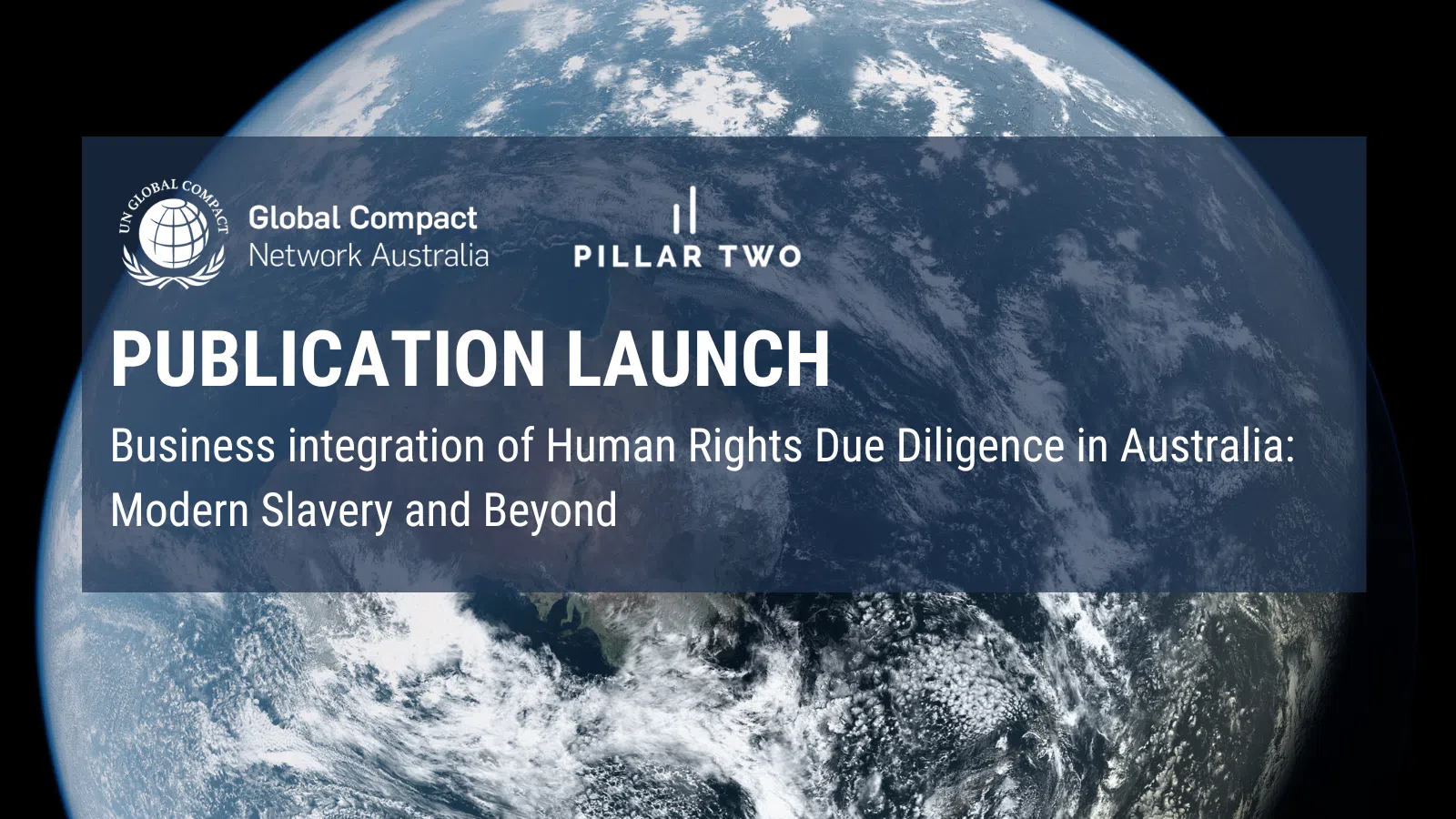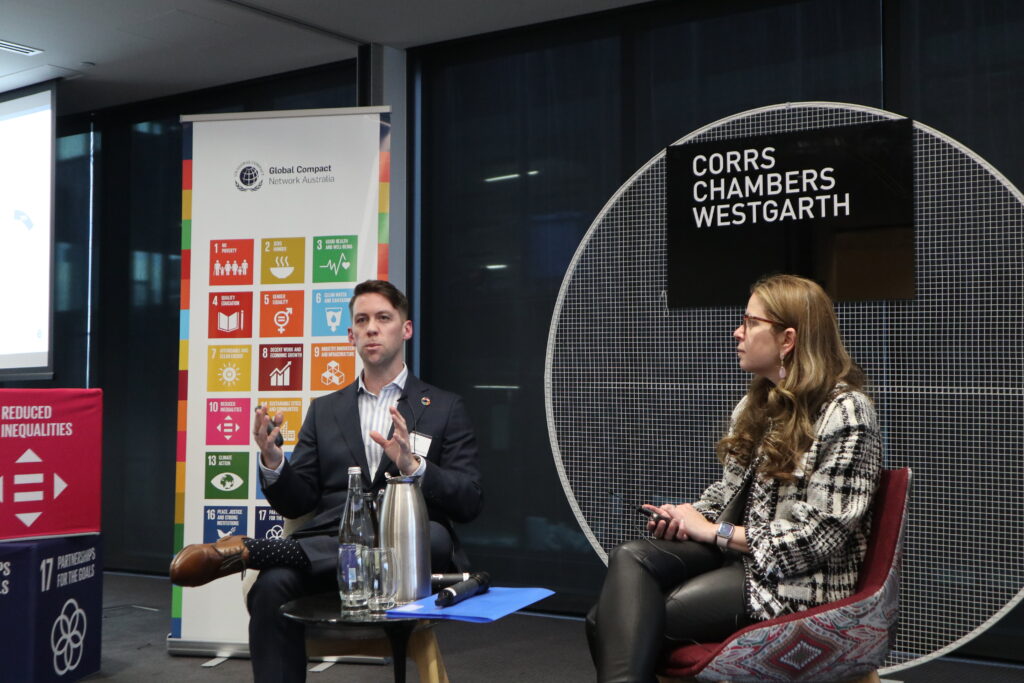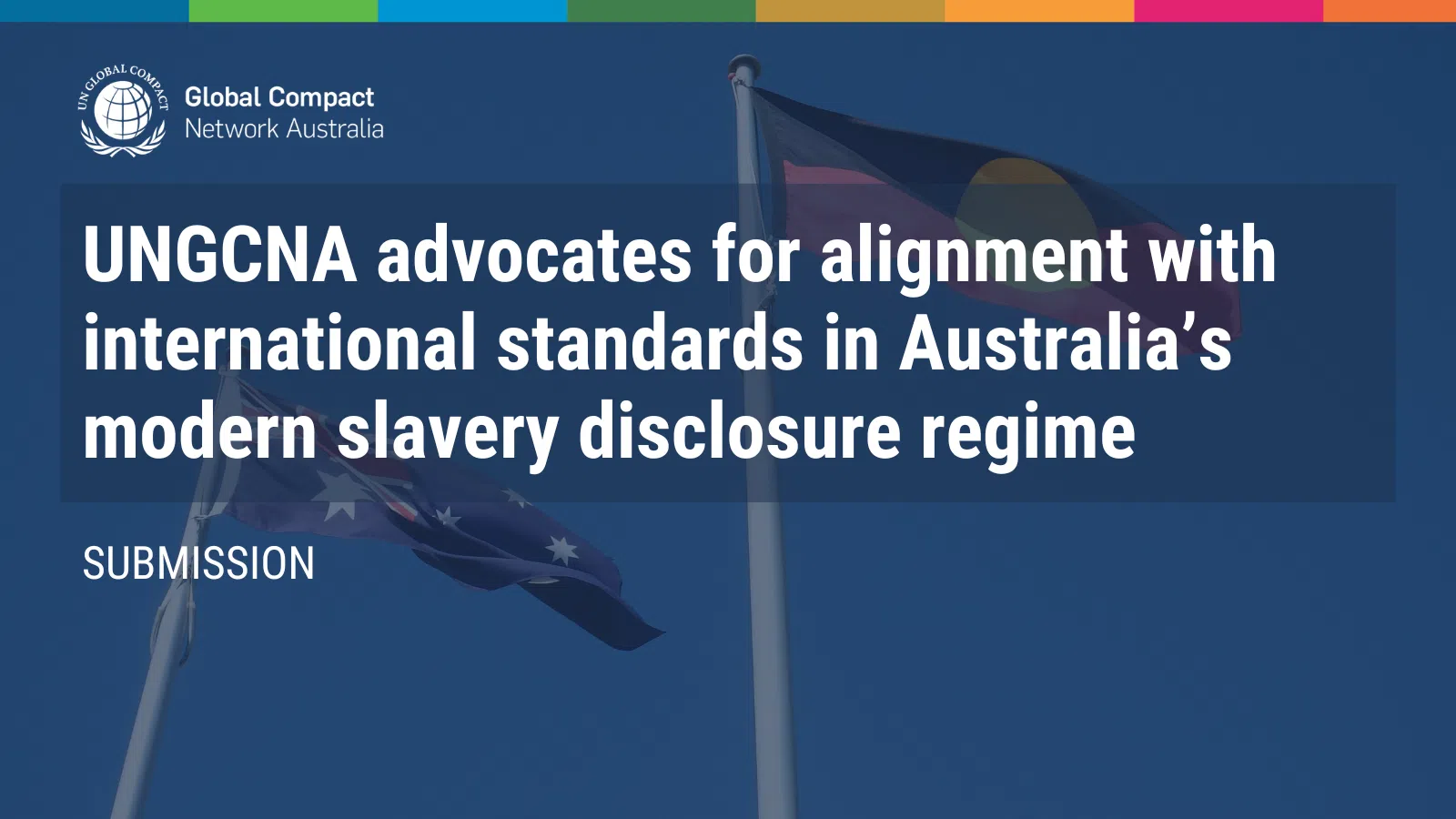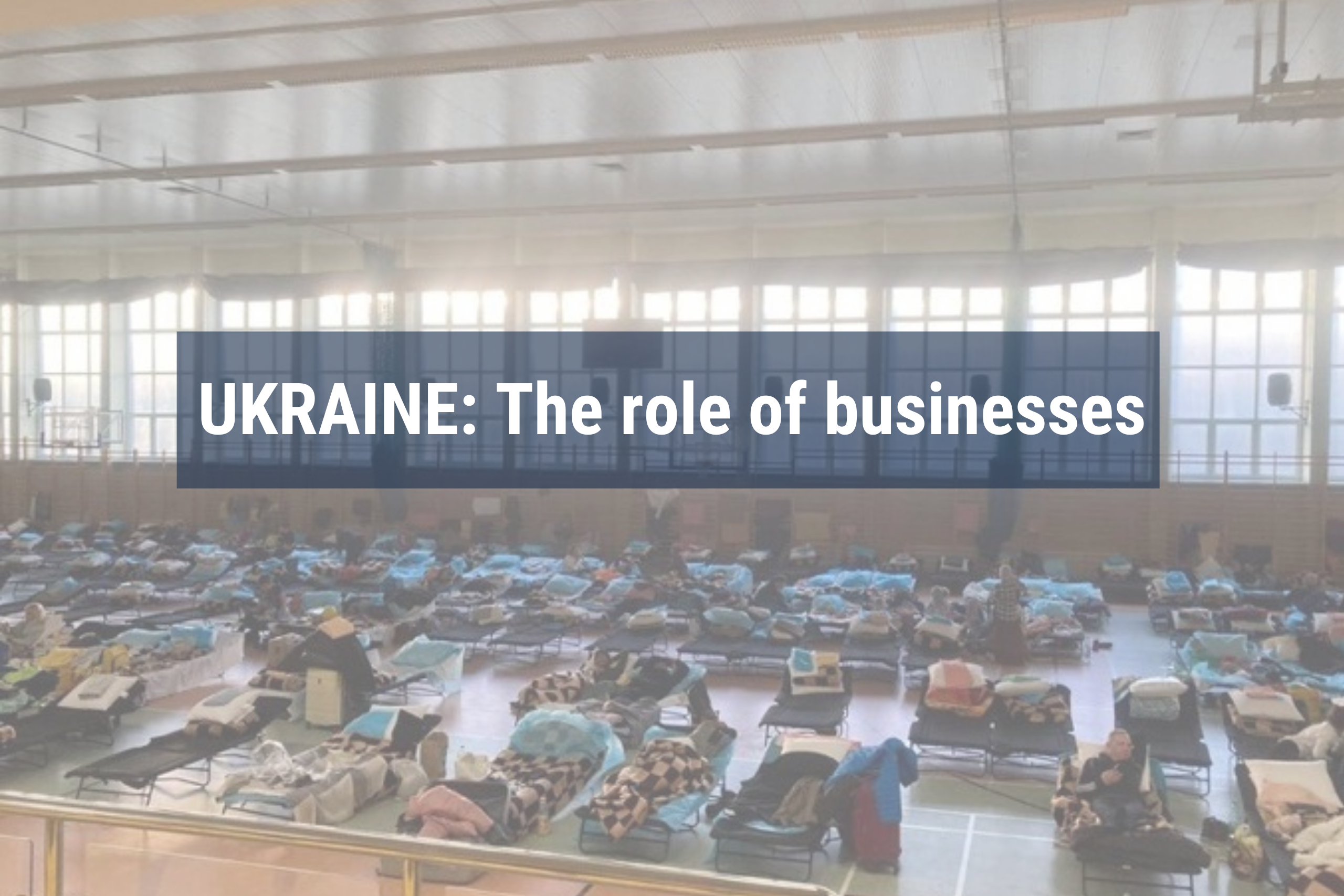
Business & Human Rights, Featured, News, Resources
PUBLICATION | Business integration of Human Rights Due Diligence in Australia: Modern Slavery and Beyond
Chris Caskey | September 13, 2023
At the 2023 Australian Dialogue on Business and Human Rights, the UN Global Compact Network Australia (UNGCNA) launched its latest publication in collaboration with Pillar Two titled Business integration of Human Rights Due Diligence in Australia: Modern Slavery and Beyond.

Image: Chris Caskey, Manager, Human Rights, at the UN Global Compact Network Australia and Vanessa Zimmerman, Chair, Business and Human Rights at the UN Global Compact Network Australia and CEO, Pillar Two, launch the publication ‘Business integration of Human Rights Due Diligence in Australia: Modern Slavery and Beyond’ at the 2023 Australian Dialogue on Business and Human Rights.
About ‘Business integration of Human Rights Due Diligence in Australia’
- Since the introduction of Australia’s Modern Slavery Act (Cth) in 2018 over 7,000 businesses have prepared and filed a modern slavery statement with the Online Register established by the Australian Government.
- However, progress made by business toward assessing and addressing broader adverse human rights impacts in line with the UN Guiding Principles on Business and Human Rights (UNGPs) is less clear. While some companies have begun to expand their modern slavery risk management processes to include broader human rights risk management and have adopted various voluntary reporting formats, there is still much work to be done to advance these activities across all sectors and companies.
- Nothing in this report suggests that modern slavery is not a severe risk to people working within the operations and value chains of Australian businesses. Rather, this report encourages businesses to adopt a broader view of the range of human rights impacts with which they may be involved.
- This publication has been designed to provide practical examples of actions that businesses can take to expand their focus to assess and address broader human rights impacts in addition to modern slavery in line with the UNGPs.
Key findings
To target the recommendations in this report, the authors undertook a high-level review of the 50 largest companies listed on the Australian Securities Exchange (the ASX) as at the March 2023 quarterly indexation. The review sought to understand how these companies were using human rights due diligence concepts to shape their human rights actions and disclosures beyond the mandatory modern slavery reporting criteria, and whether the company used human rights due diligence concepts to describe their actions taken to address modern slavery risks. We found:
- Public policy commitment: 56% of analysed companies have made a public commitment to respect “all internationally recognised human rights”, while a further 20% have made a ‘partial’ commitment, such as to “relevant human rights” or “human rights standards”.
- Assessment of salient human rights issues: 24% of the companies reported that they have conducted a form of assessment to identify human rights issues that they consider most salient in their value chain. Out of 12 companies that publicly reported their salient human rights issues, all included broader human rights issues, not just modern slavery.
- Reporting on human rights impacts beyond modern slavery: 38% of analysed companies provided details on human rights impacts with which they may be involved beyond those included in the definition of modern slavery.
The report contains a number of broader findings, including relating to the inclusion of human rights within materiality assessments, establishment of cross-functional working groups, reporting of human rights risks in the downstream value chain, and more.
A roadmap towards further alignment with the UNGPs
In light of these findings, the report provides practical guidance for businesses to support their human rights due diligence integration. It takes into account progress made by businesses in Australia, evolving stakeholder expectations and the practical realities of establishing meaningful human rights due diligence processes. Guidance is provided across the following four human rights due diligence steps:
- 1. Identify and assess actual and potential adverse human rights impacts.
- 2. Integrate findings from human rights assessments across relevant internal functions and processes and take appropriate action.
- 3. Track performance to verify whether adverse human rights impacts are being effectively addressed.
- 4. Communicate publicly, where appropriate, on company responses to actual and potential human rights impacts.
Business integration of Human Rights Due Diligence in Australia: Modern Slavery and Beyond is the latest in a series designed to build capacity of Australian businesses to respond to key human rights issues, such as modern slavery and broader human rights due diligence. The Modern Slavery Impact Initiative (MSII) has been made possible by grant funding from the Australian Government as part of the National Action Plan to Combat Modern Slavery. The views expressed in this video are the presenter’s alone and are not necessarily the views of the Australian Government.
Download the publication here:
- UN Global Compact Network Australia and Pillar Two: Business integration of Human Rights Due Diligence in Australia: Modern Slavery and Beyond (August 2023).
Authors
- Chris Caskey, Manager, Human Rights, UN Global Compact Network Australia
- Julia Bourke, Co-ordinator, Programmes, UN Global Compact Network Australia
- Vanessa Zimmerman, Chair, Human Rights Workstream and Chair, Modern Slavery Community of Practice, UN Global Compact Network Australia; CEO, Pillar Two
- Riana Cermak, Senior Advisor, Pillar Two
- Lauren Jackson, Advisor, Pillar Two
Acknowledgements
The UN Global Compact Network Australia and Pillar Two would like to acknowledge the various stakeholders that volunteered their time to provide insights on the integration of human rights due diligence within Australian businesses. In particular, the authors would like to thank participants of the UNGCNA Modern Slavery Community of Practice, as well as the various stakeholders across business including the investment sector, civil society, academia and government that attended our consultation ‘Business Pathways to Human Rights Due Diligence’, convened in May 2023. Finally, the authors would like to thank representatives from the Australian Council of Superannuation Investors (ACSI), the Responsible Investment Association of Australasia (RIAA) Human Rights Working Group, as well as Commonwealth Bank of Australia, Telstra, Rio Tinto and Woolworths Group.



